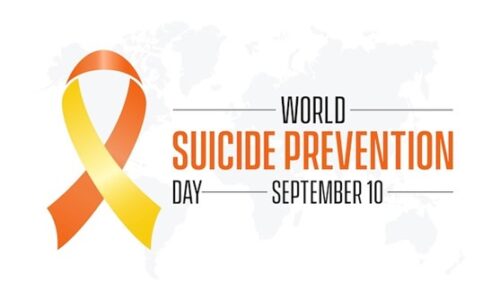Gambling problems have long been recognized as a significant issue, not only for individuals but also for communities and societies as a whole. The consequences of gambling addiction extend far beyond financial strain, impacting mental health and even leading to suicidal thoughts and behaviors. In this article, we will explore the relationship between gambling problems and suicide, examining the factors that contribute to this connection and discussing intervention strategies to address these challenges.
Understanding Gambling Problems
Gambling problems, also known as gambling addiction or pathological gambling, refer to the uncontrollable urge to gamble despite negative consequences. It is characterized by an individual’s inability to control their gambling behavior, leading to financial, emotional, and psychological distress. The allure of gambling lies in its ability to activate the brain’s reward system, creating a pleasurable sensation similar to that of drugs and alcohol. This rewarding experience can quickly transform into an addiction, as individuals chase the excitement and thrill associated with placing bets and winning money.
The Prevalence of Suicidal Behavior Among Individuals with Gambling Problems
Research consistently shows a strong link between gambling problems and suicidal behavior. Individuals with gambling problems are at a significantly higher risk of experiencing suicidal thoughts, attempting suicide, and even completing suicide. The magnitude of this risk is alarming, with studies indicating that approximately 400 Australians lose their lives to suicide each year as a result of gambling-related issues.
The prevalence of suicidal behavior among individuals with gambling problems is staggering. Studies have found that up to 40% of individuals seeking treatment for gambling addiction have a history of suicide attempts. Furthermore, estimates suggest that suicidal ideation affects between 17% and 80% of individuals in mental health and problem gambling support settings. This highlights the urgent need for targeted intervention and support for individuals struggling with gambling problems and suicidal thoughts.
Risk Factors for Suicidal Behavior in Individuals with Gambling Problems
Several risk factors contribute to the increased likelihood of suicidal behavior among individuals with gambling problems. Understanding these risk factors can help identify individuals at higher risk and implement appropriate interventions. Common risk factors include:
Co-occurring Mental Health Disorders
Individuals with gambling problems often have comorbid mental health disorders, such as depression, anxiety, bipolar disorder, or obsessive-compulsive disorder. These mental health conditions can exacerbate feelings of hopelessness, despair, and emotional instability, increasing the risk of suicidal ideation and attempts.
Relationship Problems
Gambling problems can strain relationships with family members, romantic partners, and friends. The breakdown of these relationships can lead to feelings of isolation, loneliness, and a lack of support, further contributing to mental health challenges and an increased risk of suicide.
Financial Struggles
Gambling addiction often leads to severe financial strain, including mounting debts and an inability to meet basic needs. The financial consequences of gambling problems can cause overwhelming stress, desperation, and a sense of hopelessness, amplifying the risk of suicidal thoughts and behaviors.
Access to Lethal Means
Individuals with gambling problems may have access to highly lethal means of suicide, such as firearms or medications. The availability of these means increases the risk of impulsive actions and fatal outcomes.
Protective Factors and Suicide Prevention
While understanding the risk factors associated with gambling problems and suicidal behavior is crucial, it is equally important to identify protective factors that can mitigate the risk and promote resilience. Protective factors include:
Social Support
Strong social support networks, including family, friends, and community connections, can serve as a protective factor against suicidal behavior. These supportive relationships provide individuals with a sense of belonging, emotional support, and assistance during times of distress.
Effective Coping Mechanisms
Developing effective coping mechanisms, problem-solving skills, and stress management strategies can help individuals navigate the challenges associated with gambling problems. By finding healthier alternatives to gambling, such as exercise, hobbies, or therapy, individuals can reduce the risk of turning to self-destructive behaviors.
Professional Intervention
Seeking professional help from mental health and addiction specialists is essential for individuals with gambling problems and suicidal thoughts. Mental health professionals can provide evidence-based interventions, such as cognitive-behavioral therapy and motivational interviewing, to address underlying issues and develop personalized treatment plans.
Suicide Prevention Strategies for Individuals with Gambling Problems
Addressing the complex relationship between gambling problems and suicidal behavior requires a comprehensive approach. Here are some strategies and interventions that can help prevent suicide among individuals struggling with gambling problems:
1. Early Identification and Screening
Implementing routine screening processes in gambling treatment settings and mental health services can identify individuals at risk of suicidal behavior. Validated assessment tools can assist in evaluating suicidal ideation, history of suicide attempts, and other risk factors.
2. Collaborative Care
Adopting a collaborative care model that involves mental health professionals, addiction specialists, and support networks can ensure individuals receive comprehensive care. This approach allows for coordinated interventions, including therapy, medication management, and social support, to address both gambling problems and underlying mental health disorders.
3. Safety Planning
Safety planning is a vital component of suicide intervention for individuals with gambling problems. Mental health professionals can work with individuals to develop personalized safety plans that outline coping strategies, emergency contacts, and steps to take during moments of crisis.
4. Education and Awareness
Increasing public awareness about the link between gambling problems and suicidal behavior can help reduce stigma and promote early intervention. Educational campaigns, community workshops, and online resources can provide information about available support services and encourage individuals to seek help.
5. Crisis Helplines and Support Services
Accessible crisis helplines and support services should be readily available to individuals with gambling problems who may be experiencing suicidal thoughts. These services can provide immediate support, crisis intervention, and referrals to appropriate mental health professionals.
Conclusion
The connection between gambling problems and suicidal behavior is a serious and pressing issue that requires attention and intervention. Individuals struggling with gambling addiction are at a significantly higher risk of experiencing suicidal thoughts, attempting suicide, and completing suicide. By understanding the risk factors, implementing preventive strategies, and providing comprehensive support, we can work towards reducing the devastating impact of gambling problems on individuals’ mental health and well-being. Remember, early identification, intervention, and ongoing support are essential in saving lives and promoting a safer and healthier society.
If you or someone you know is struggling with gambling problems or experiencing suicidal thoughts, please reach out to a mental health professional or contact your local crisis helpline.












